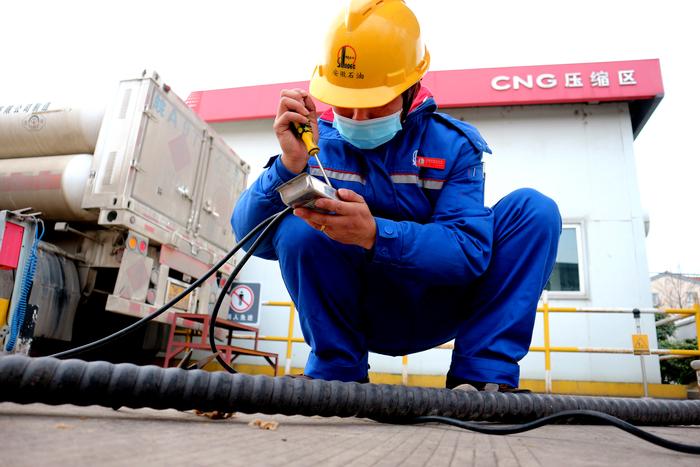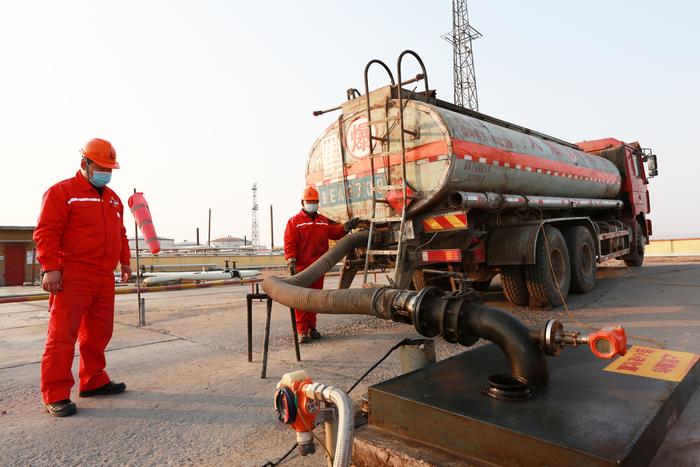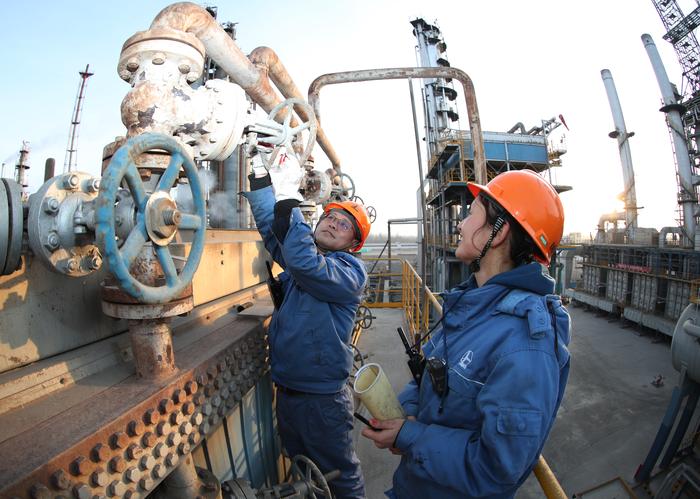|
| 2021-02-09 来源: 中国石化新闻网 |
| 石化新闻 |
中国石化新闻网讯 据2月4日Neftegaz.RU.报道,2019年,德国可再生能源发电量占比超过40%。德国经济部长Peter Altmaier在新闻发布会上重申,如果欧洲绿色协议的实施能提供理由和参考的话,德国准备进一步提高2030年的可再生能源目标。不过,决不能引发更高的可再生能源税。 Altmaier还试图减轻人们对该国煤炭出口法的担忧,该法律称最迟在2038年淘汰煤炭——这个时间较煤炭被需求的期限要长,这样看来,如果市场能够更快地逐步淘汰煤炭,那么该法律既不会阻碍也不会拖延这一进程。 德国是全球少数几个将在2050年前的气候目标写入本国法律的国家之一。德国分配的减排目标是到2030年减排38%。 该国能源转型专家委员会监测报告称,德国必须迅速提高其国家气候和能源目标,使其努力与欧盟的新目标保持一致。这意味着德国必须将其2030年温室气体减排目标从55%提高到65%。 负责能源转型监测的德国政府委员会主席Andreas L?schel表示:“如果我们想要实现2030年的目标,在可再生能源运输、能源效率等方面,在未来10年内,当前的减排速度完全达不到要求。欧洲55%的气候目标意味着我们必须把国家目标提高到65%,而可再生能源的份额可能会更接近70%。可再生能源的扩张将急剧加速,由于碳减排补贴政策,我们可能会更快地退出煤炭市场。到本世纪20年代末,我们可能基本上会逐步淘汰它。” 德国在发展可再生能源方面取得了重大进展。自2000年美国《可再生能源法》(Renewable Energy Act)推出补贴政策以来,可再生能源已从一项小众技术,崛起为电力结构中的主导力量。 2019年,德国可再生能源发电量占比超过40%,提前一年超过了2020年35%的目标。正如其《2030年气候行动计划》所述,该国目前的目标是到2030年将减排目标提高到65%。 欧盟成员国领导人在2020年12月同意将欧盟2030年温室气体减排目标提高到至少55%,但这一目标尚未与欧洲议会进行谈判,而欧洲议会要求更大的目标。 提高这一目标需要在经济相关所有部门采取一系列行动,欧盟计划在2021年6月之前提出改革所有主要能源和气候立法的建议。 王佳晶 摘译自 Neftegaz.RU. 原文如下: German economy minister reiterated that the government is prepared to further increase the 2030 renewables target More than 40 % of the Germany's power consumption was covered by renewables in 2019. At a press conference, German economy minister Peter Altmaier reiterated that the government is prepared to further increase the 2030 renewables target, should the implementation of the European Green Deal give cause for this, Clean Energy Wire reported. However, this must not lead to a higher renewables levy, he said. P. Altmaier also tried to alleviate worries that the country's coal exit law – which guarantees a phase out by 2038 at the latest – would keep coal alive longer than necessary: Q. If the market manages to phase out coal faster, then the law will neither hinder nor delay that. Germany is one of a handful of countries globally to have enshrined the goal of climate neutrality by or before 2050 in its national law. Germany's allocated emission reduction target is set at minus 14 % by 2020 and minus 38 % by 2030. The expert commission in charge of the country’s energy transition - Energiewende monitoring report dated February 3, 2020, said: Germany must rapidly step up its national climate and energy targets to bring efforts in line with new EU-wide goals. it means that Germany has to raise its 2030 greenhouse gas reduction target to 65 % from 55 %. Andreas L?schel, Head of the German government commission tasked with Energiewende monitoring, told Clean Energy Wire: The speed we had in recent years is not sufficient for the next 10 years if we want to reach the 2030 targets, especially in energy efficiency but also in transport and renewables. We estimate that a European 55 % climate target means that we have to raise our national target towards 65 %, and that the share of renewables will probably rather be 70 %. Renewables expansion will sharply accelerate, and we will likely have a faster coal exit due to higher CO?allowance prices. We may have largely phased it out by the end of the 2020s. Germany has made significant progress on the expansion of renewable energies. Since the launch of support payments in the country’s Renewable Energy Act in 2000, renewables have risen from a niche technology to become the dominant player in the power mix. More than 40 % of the country's power consumption was covered by renewables in 2019, exceeding the 2020 target of 35 % one year ahead of time. The government is now taking aim at 65 % by 2030, as is stated in its Climate Action Programme 2030. Leaders of EU member states in December, 2020, agreed to increase the EU 2030 greenhouse gas reduction target to at least 55 %, but the target has yet to be negotiated with the European Parliament, which demands even more ambition. Raising the target will require a set of actions across all sectors of the economy, and the EC plans to present proposals to reform all major energy and climate legislation by June 2021 – the ?Fit for 55 package?. |








